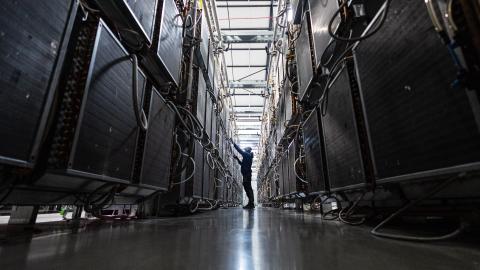We've long argued that the biggest challenge blue model governance faces isn’t Republicans—it’s math. The latest example: Obama administration rules designed to increase worker pay will leave colleges with less money to educate students without resorting to tuition hikes. The Wall Street Journal reports:
Schools across the country are bracing for a surge in personnel costs as they prepare for the Obama administration’s overhaul to overtime-pay rules.
... While the rule will apply to employers of all kinds, higher-education institutions say their missions and circumstances mean they’ll be hit in ways that other types of employers aren’t. School officials, who say they’re under pressure to keep a lid on tuition, have warned of cuts in student services, degree offerings and labor-intensive research on issues such as climate change and cancer.
... The new requirements are creating a clash between two White House priorities: strengthening the middle class by raising pay for many workers and relieving tuition burdens on college students.
When it comes to employment law, the basic approach of blue model governance is to make it more difficult and more expensive to hire people, from minimum wage increases to tort liability to workplace regulations. Blue policy aims to raise either the money wage of workers or the ‘social’ wage—things like healthcare and unemployment insurance—while at the same time saddling employers large and small with costly mandates.
Such policies are usually motivated by good intentions (who doesn’t want more workplace injury protection and more economic security for workers?). But makes it harder to create jobs or to operate an enterprise. And it tends to favor large and well-established for-profit companies over both small for-profit business and large nonprofits, like universities, with very large labor forces.
So blue requirements end up blocking other blue goals: Davis-Bacon makes it more expensive to hire workers for infrastructure programs, so we get fewer infrastructure programs even though those few with jobs on them are paid pretty well, for example, and minimum wage hikes reduces employment opportunities for the less-skilled even though those who do find jobs are more secure. And now the Obama administration's overtime push will make it harder for colleges to hire even as it puts real pressure on college affordability. At a time of large-scale underemployment and disappearing opportunity, this seems like a very bad bet.

















